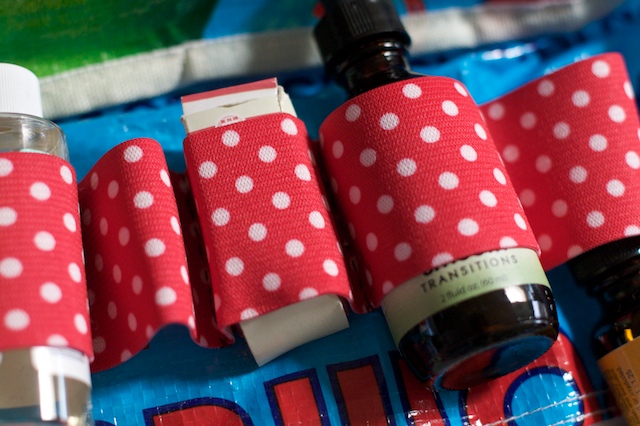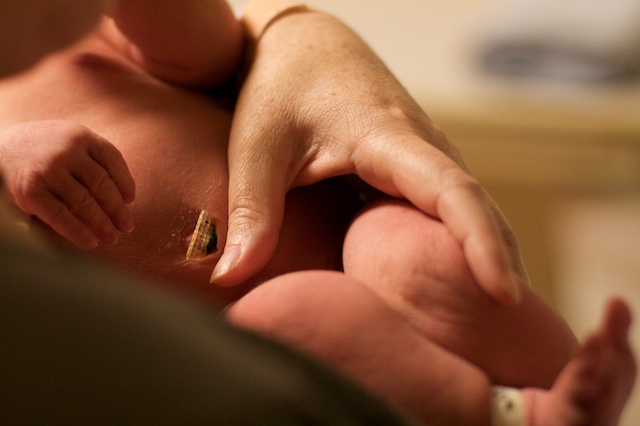Mama Grief: Claim Your Right To Heal
 I originally wrote this piece as a guest post on Modern Alternative Pregnancy in 2013. Writing it was cathartic and healing, but around Bean's birthday, which is this week, wisps of this old sadness still rise. I hope sharing it again here will give some mama somewhere permission to voice and heal her grief, whatever that looks like for her. I cried when I came home from the hospital with my newborn daughter. I walked through our rooms, cleaned and prepared for us by my sister and my best friend, and sobbed. They had washed and put away the dishes. They brought a bouquet of flowers that nearly filled our dining room table. They put the red silk comforter back on our bed and deflated and put away the birthing tub that I never got to use.Our daughter was supposed to be born there, delivered into warm water and surrounded by candles. I wanted her father to catch her body and bring her to my breast. I wanted the soothing music I had carefully selected.
I originally wrote this piece as a guest post on Modern Alternative Pregnancy in 2013. Writing it was cathartic and healing, but around Bean's birthday, which is this week, wisps of this old sadness still rise. I hope sharing it again here will give some mama somewhere permission to voice and heal her grief, whatever that looks like for her. I cried when I came home from the hospital with my newborn daughter. I walked through our rooms, cleaned and prepared for us by my sister and my best friend, and sobbed. They had washed and put away the dishes. They brought a bouquet of flowers that nearly filled our dining room table. They put the red silk comforter back on our bed and deflated and put away the birthing tub that I never got to use.Our daughter was supposed to be born there, delivered into warm water and surrounded by candles. I wanted her father to catch her body and bring her to my breast. I wanted the soothing music I had carefully selected. Instead, on the morning of my third day of labor, when I was still only dilated 3 cm, exhausted and scared, we sat with our midwife and came up with a new plan. We caravanned to the hospital, where I got an epidural, Pitocin and a long nap. It took 12 more hours of labor and three of pushing in a room where I could hear strangers passing by the open door before Stella was born just before midnight, 76 hours after my first contractions. Because her white blood-cell count was elevated, we were kept at the hospital for another night before they let us come home.When Bean was a few days old, I tried to explain my sadness to my best friend. She had supported my choice of a home birth and came over as soon as I called to say my contractions had begun and stayed with me until the end. She had leaned in my back to ease my pain over and over, fed me handfuls of almonds to keep my stamina up and sat vigil over me that last long night before we went to the hospital. Still, surprised at my grief, she said, “But you have a healthy baby! That’s all that matters!”I didn’t regret going to the hospital. I was grateful for the nurse who said, while fastening the ID bracelet on my wrist, “I had two babies at home. I know you wouldn’t be here if you didn’t have to be. We will take good care of you.” I was grateful for the drugs that got me through that final stretch. I was grateful for the skilled obstetrician who turned my baby’s body the tiniest bit to get her past my pubic bone and kept us from a cesarean. I was so grateful -- of course I was -- for the beautiful and healthy baby in my arms.But I was also grieving for the birth I didn’t have. I was grieving for not being able to bring my baby into the world the way I had envisioned. Having a healthy baby wasn’t all that mattered to me, but I quickly learned that no one wanted to hear it. So I packed up my grief and stuffed into in a small corner of my heart.Now, two years later, we are trying to get pregnant again. That corner of my heart still aches. I’m afraid of laboring. I’m afraid how much it will hurt, how long it will last, and whether I’ll have the strength to get all the way through it. I read birth stories of mothers who feel powerful and fierce after they give birth and I am jealous. My birth story doesn’t feel powerful.
Instead, on the morning of my third day of labor, when I was still only dilated 3 cm, exhausted and scared, we sat with our midwife and came up with a new plan. We caravanned to the hospital, where I got an epidural, Pitocin and a long nap. It took 12 more hours of labor and three of pushing in a room where I could hear strangers passing by the open door before Stella was born just before midnight, 76 hours after my first contractions. Because her white blood-cell count was elevated, we were kept at the hospital for another night before they let us come home.When Bean was a few days old, I tried to explain my sadness to my best friend. She had supported my choice of a home birth and came over as soon as I called to say my contractions had begun and stayed with me until the end. She had leaned in my back to ease my pain over and over, fed me handfuls of almonds to keep my stamina up and sat vigil over me that last long night before we went to the hospital. Still, surprised at my grief, she said, “But you have a healthy baby! That’s all that matters!”I didn’t regret going to the hospital. I was grateful for the nurse who said, while fastening the ID bracelet on my wrist, “I had two babies at home. I know you wouldn’t be here if you didn’t have to be. We will take good care of you.” I was grateful for the drugs that got me through that final stretch. I was grateful for the skilled obstetrician who turned my baby’s body the tiniest bit to get her past my pubic bone and kept us from a cesarean. I was so grateful -- of course I was -- for the beautiful and healthy baby in my arms.But I was also grieving for the birth I didn’t have. I was grieving for not being able to bring my baby into the world the way I had envisioned. Having a healthy baby wasn’t all that mattered to me, but I quickly learned that no one wanted to hear it. So I packed up my grief and stuffed into in a small corner of my heart.Now, two years later, we are trying to get pregnant again. That corner of my heart still aches. I’m afraid of laboring. I’m afraid how much it will hurt, how long it will last, and whether I’ll have the strength to get all the way through it. I read birth stories of mothers who feel powerful and fierce after they give birth and I am jealous. My birth story doesn’t feel powerful. I know I have to heal this sadness before I give birth again. I need to claim the moments in my story where I was fierce and strong. I need to find my power in my own experience. I trust what my midwife said to me a few days after Stella’s birth: “You won’t have this birth again. The next one might be harder or easier, but you won’t have this exact birth again.”If, like me, you are grieving a piece of your pregnancy, birthing, or mothering experience, you have a right to feel that grief. Whether you faced an unwanted cesarean or unexpected interventions, if you were unable to breastfeed, if you suffered from depression, or if your birth came so fast you could barely process it, you have a right to feel sad, or angry, ripped off or disappointed.Embrace those feelings. Find someone you trust to listen and support you while you talk through it. I urge you to process that particular grief, not bury it because it isn’t popular or because your baby is healthy and that’s all that matters.You matter, mama. Birthing and mothering is your experience, too.
I know I have to heal this sadness before I give birth again. I need to claim the moments in my story where I was fierce and strong. I need to find my power in my own experience. I trust what my midwife said to me a few days after Stella’s birth: “You won’t have this birth again. The next one might be harder or easier, but you won’t have this exact birth again.”If, like me, you are grieving a piece of your pregnancy, birthing, or mothering experience, you have a right to feel that grief. Whether you faced an unwanted cesarean or unexpected interventions, if you were unable to breastfeed, if you suffered from depression, or if your birth came so fast you could barely process it, you have a right to feel sad, or angry, ripped off or disappointed.Embrace those feelings. Find someone you trust to listen and support you while you talk through it. I urge you to process that particular grief, not bury it because it isn’t popular or because your baby is healthy and that’s all that matters.You matter, mama. Birthing and mothering is your experience, too.
What do you grieve about your pregnancy, birth, or early mothering experience? What do you need to do to resolve that grief and feel powerful again?
To get posts like this delivered directly to your mailbox (along with my free ebook and a monthly newsletter), you can sign up right here.
